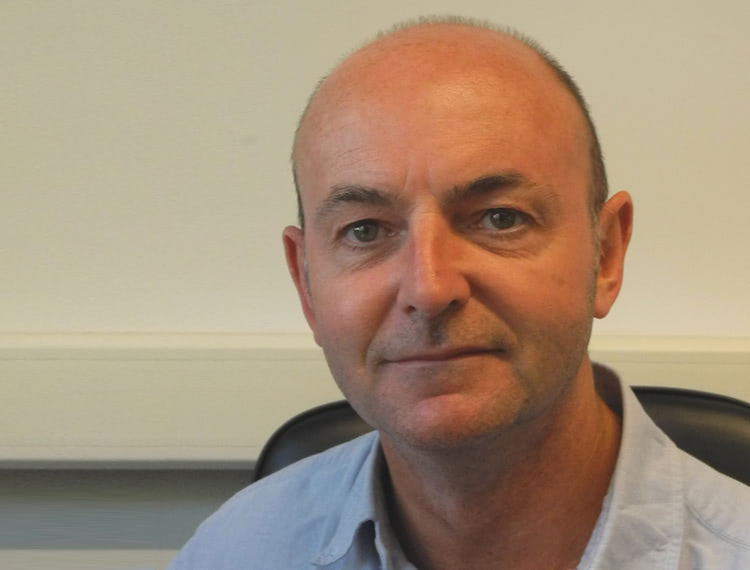What lessons can the FE sector learn from the success of a UK-based online educational training provider for medical professionals?

Delivering high quality, career-relevant courses and skills in partnership
An age-old complaint of many employers is that students leave FE and HE without qualifications and skills relevant for the workplace. Providing education and skills relevant to the day to day work of health professionals is something which has brought Diploma MSc rapid growth since it was formed in 2010.
Based in Cardiff, the company is made up of experts from the health sector and delivers its courses in partnership with the UK’s sixth largest universities – The University of South Wales. Diploma MSc identifies and offers courses aimed at enhancing the skills and practical knowledge of health professionals, whilst also helping them to meet their necessary CPD targets and further their careers.
As well as the University of South Wales, Diploma MSc has also built up an effective partnership with the Centre for Diabetes and Endocrinology (CDE) in South Africa. Working together since 2010, Diploma MSc and The CDE have helped healthcare professionals successfully complete the Postgraduate Diploma in Diabetes, with many then going on to complete the MSc.
“The courses are authored and delivered by an expert board of internationally recognised educational leaders,” said Dr Steve Davies, Director of Courses at Diploma MSC.
“They are extremely popular and many of our courses have been approved by the Royal College of General Practitioners (RCGP), Heart UK and the International Diabetes Federation (IDF), and Health Education England (HEE) have even funded places for NHS staff.
“Health professionals across the world can specialise in certain fields such as dermatology, diabetes, endocrinology, genomics medicine and healthcare and rheumatology.
“This increases their expertise as well as their ability to potentially earn more as a result.”
Diploma MSc use their expertise to spot gaps or opportunities in postgraduate online training across the world, coming up with courses to fill the void. One such opportunity was the growing requirement for doctors, GPs, nurses, pharmacists and other healthcare professionals to have formal teaching qualifications. As a result, they recently launched new medical education courses as Dr Steve Davies explained:
“All doctors at some point in their careers are involved in formal or informal training or supervision of junior doctors, staff and students.
“We understand that to be effective trainers, there is an increasing need for healthcare professionals to have formally recognised teaching qualifications, so our medical education courses are aimed at healthcare professionals involved in any form of medical teaching.”
Is a more flexible approach to learning required for FE?
The recent report by the Social Market Foundation “Rising to the challenge:The Further Education and skills sector over the next decade” argues that colleges and independent FE providers must make the transition from ‘physical learning and physical estates to virtual learning’.
It is an approach which has worked wonders for Diploma MSc. Their knowledge and experience of the health sector has also helped them to make their courses both flexible and accessible. Fully aware of the pressures and demands on the time of busy health professionals, they decided to deliver courses online.
Winner of the ‘Best Online Distance Learning Programme’ at the E-Learning Awards in 2015, Diploma MSc’s courses are accessible 24/7 and allow each healthcare professional completing them to fit their study in around their hectic schedules.
They now have students from over 70 countries across six continents enrolled on their courses and have had to take on extra members of staff to cope with demand. In September, they are launching six new PGDip/MSc courses to add the 19 they currently run.
“Flexible online learning certainly provides an increasingly attractive proposition for busy professionals,” said Dr Davies.
“We are continuing our expansion, with the launch of several new courses to satisfy the growing demand for high-quality online learning, including a postgraduate foundation course.
“All levels of education can certainly benefit from embracing the e-learning delivery model. The level of flexibility and accessibility it offers, combined with its proven effectiveness, opens up significant potential for organisations involved in educating. I don’t see any reason why our model cannot be successfully applied outside of postgraduate education and I think there is an opportunity for more innovative courses in FE and HE to be delivered online in a similar way.”
FE News spoke to Dr Steve Davies, Director of Courses, Diploma MSC
About Diploma MSc: Diploma MSc delivers online postgraduate diplomas and MScs in conjunction with the University of South Wales to professionals working in the health sector worldwide. Demand for their courses has experienced rapid growth over the past two years.











Responses